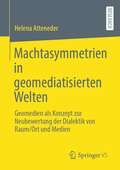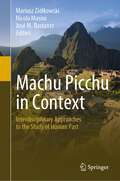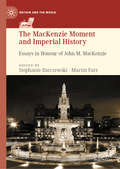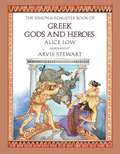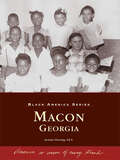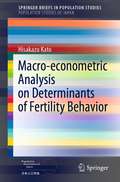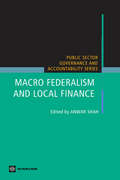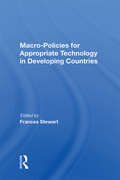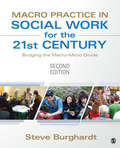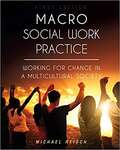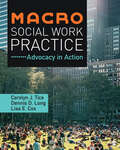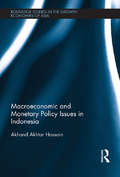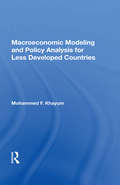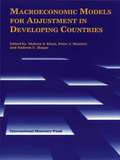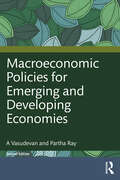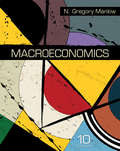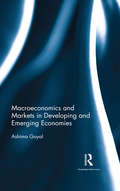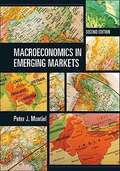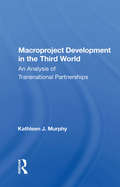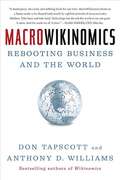- Table View
- List View
Machtasymmetrien in geomediatisierten Welten: Geomedien als Konzept zur Neubewertung der Dialektik von Raum/Ort und Medien
by Helena AttenederAnsätze einer kritischen Neubewertung gesellschaftlicher (Kommunikations-)Phänomene in Raum und Zeit werden jüngst in der semi-autonomen Brückendisziplin „Geomedia“ bzw. „Geomedia Studies“ vereint, die sich an der Schnittstelle zwischen Medien-, Kommunikationswissenschaft und Geographie etabliert hat. Daran anknüpfend wird Geomediatisierung als die zunehmende Durchdringung der Gesellschaft mit Geomedientechnologien und deren wahrgenommener Unerlässlichkeit in einer Vielzahl von Alltagszusammenhängen als dialektischer Prozess verstanden, dessen detaillierte Ausformung dem Kräfteverhältnis und den Aushandlungsprozessen mehr oder weniger einflussreicher (sozialer) Interessensgruppen obliegt. Machtverhältnisse manifestieren sich dabei sowohl in den Potentialen bzw. Schranken für individuelle Nutzer*innen, in den Strukturen der Gesellschafts- und (kapitalistischen) Wirtschaftsordnung und letztlich in Prozessen der sozialen und räumlichen (Re-)Produktion.In diesem Buch werden auf jeweils unterschiedlichen Abstraktions- und Analysestufen Geomedientechnologien als sozio-technologische Phänomene kritisch erschlossen und im Hinblick auf Manifestationen von Macht überprüft.
Machu Picchu in Context: Interdisciplinary Approaches to the Study of Human Past
by Nicola Masini Mariusz Ziółkowski José M. BastanteThis book aims at integrating archaeology with science in order to provide additional information with respect to a traditional archaeological anthropological perspective. It sheds light on Incan culture, the relation between human frequentation and environmental changes, the Incan architecture in relation with Andean cosmovision using, for the first time, diverse technological and scientific approaches including LiDAR remote sensing, geophysics and radio carbon dating. A number of recent studies conducted by Polish, Italian and Peruvian scientific missions in Machu Picchu, Chachabamba and Cusco are presented and discussed.Chapter 5 is available open access under a Creative Commons Attribution-ShareAlike 4.0 International License via link.springer.com.
The MacKenzie Moment and Imperial History: Essays in Honour of John M. MacKenzie (Britain and the World)
by Stephanie Barczewski Martin FarrThis book celebrates the career of the eminent historian of the British Empire John M. MacKenzie, who pioneered the examination of the impact of the Empire on metropolitan culture. It is structured around three areas: the cultural impact of empire, 'Four-Nations' history, and global and transnational perspectives. These essays demonstrate MacKenzie’s influence but also interrogate his legacy for the study of imperial history, not only for Britain and the nations of Britain but also in comparative and transnational context. Written by seventeen historians from around the world, its subjects range from Jumbomania in Victorian Britain to popular imperial fiction, the East India Company, the ironic imperial revivalism of the 1960s, Scotland and Ireland and the empire, to transnational Chartism and Belgian colonialism. The essays are framed by three evaluations of what will be known as 'the MacKenzian moment' in the study of imperialism.
The MacMillan Book of Greek Gods and Heroes
by Alice Low Arvis Stewart Barry R. KatzThe gods and heroes of ancient Greece shake heaven and earth in a collection of over thirty stories that breath new life into the myths of Olympus. Here is the triumphant tale of the Trojan Horse, the tragedy of Oedipus, the downfall of Medusa and more. Witness the grand drama of some of the best known heroes of all time in a fresh rendition of these timeless tales.
Macon, Georgia (Black America Series)
by Jeanne Herring Ed.S.In this engaging new visual history showcasing Macon's African Americans, vintage photographs illuminate the contributions and achievements of black citizens who have lived and worked in the heart of Georgia for more than one hundred and fifty years. Local landmarks, such as the Douglass Theater and the Harriet Tubman Museum, and unique African-American communities, such as Summerfield and Pleasant Hill, are testament to the indelible mark left on Macon by its enterprising black residents.
Macro-econometric Analysis on Determinants of Fertility Behavior (SpringerBriefs in Population Studies)
by Hisakazu KatoThe book comprises three chapters, with each chapter assigned various type data such as time series data, cross sectional data and panel data. The purpose of this book is to explore the economic and social determinant factors of fertility. Unlike many previous empirical analyses of fertility and the related demographic events, this research has three characteristics. The first is that the relationship between fertility and labor participation by females is thoroughly considered, with much discussion about the structural change between those factors. The second is that time series analysis such as the Bayesian vector autoregressive (BVAR) model or co-integration concepts is applied to explore the determinant factors of fertility. The third is that the effectiveness of public policies related to improve fertility is confirmed. In recent years, micro-econometric analysis has become popular; however, this book takes another approach from the perspective of macro- or semi-macro-econometrics.
Macro Federalism and Local Finance
by Anwar M. ShahThe design of a federal system to deal with growth, stabilization, and regional and local development issues is the primary concern of this volume, edited by Anwar Shah. The book provides analytical tools to address issues arising from globalization, localization, and regional integration. It discusses tax harmonization issues associated with subnational value added tax administration. It provides a framework for fiscal discipline in a federal system. Lessons from international experiences from policies to deal with lagging regions are drawn. The book empirically examines the effect of fiscal decentralization on the overall size of the public sector. Finally, it draws lessons from industrial countries' experiences on local governance. This important new series represents a response to several independent evaluations in recent years that have argued that development practitioners and policy makers dealing with public sector reforms in developing countries and, indeed, anyone with a concern for effective public governance could benefit from a synthesis of newer perspectives on public sector reforms. This series distills current wisdom and presents tools of analysis for improving the efficiency, equity, and efficacy of the public sector. Leading public policy experts and practitioners have contributed to the series.
Macro Policies For Appropriate Technology In Developing Countries
by Frances StewartThis book explores the effects of macro-policies and determines which policies have best promoted appropriate technology in developing countries. It explores the political economy of macro-policies, examining which groups in society are likely to benefit from alternative policies and technologies.
Macro Practice: A Generalist Approach (6th edition)
by Ralph Brody Murali D. NairThis volume studies the environmental context affecting human services and social agencies, the service delivery system and review of generic flowchart model case management.
Macro Practice in Social Work for the 21st Century: Bridging the Macro-Micro Divide
by Steve BurghardtMacro Practice in Social Work for the 21st Century, Second Edition offers a modern approach to building effective career skills in macro practice. Author Steve Burghardt inspires students by tracing the careers of macro-practitioners from grass roots organizers to agency executives. By focusing on how practitioners can make meaningful, strategic choices regardless of their formal roles and responsibilities, this Second Edition takes a refreshing new approach on the key issues of how to respond to diversity and oppression, the use of the internet for organization, the limits of “virtual trust,” understanding where "micro" and "macro" meet in practice, and co-leadership development.
Macro Practice in Social Work for the 21st Century: Bridging the Macro-Micro Divide
by Steve BurghardtMacro Practice in Social Work for the 21st Century, Second Edition offers a modern approach to building effective career skills in macro practice. Author Steve Burghardt inspires students by tracing the careers of macro-practitioners from grass roots organizers to agency executives. By focusing on how practitioners can make meaningful, strategic choices regardless of their formal roles and responsibilities, this Second Edition takes a refreshing new approach on the key issues of how to respond to diversity and oppression, the use of the internet for organization, the limits of “virtual trust,” understanding where "micro" and "macro" meet in practice, and co-leadership development.
Macro Social Work Practice: Working for Change in a Multicultural Society
by Michael ReischMacro Social Work Practice: Working for Change in a Multicultural Society explores the dynamics and practice implications of increasingly diverse communities, organizations, and social service networks and helps students develop the skills to work successfully in these contexts. <p><p> The book gives students the foundational skills and knowledge required for effective practice in social service and human organizations, healthcare settings, communities, social networks, and social movements. It emphasizes the relationship between structural and institutional inequalities and the experiences of individuals, families, communities, and organizations. <p><p> Through case examples the book illustrates how principles of social justice, empowerment, and cultural awareness can be applied in different cultural contexts. Through various exercises, students will apply critical thinking to resolve practical and ethical dilemmas and make the type of difficult decisions that practitioners confront every day. The book also addresses how recent political events, cultural developments, and social changes have altered both the context and the content of macro social work practice in the United States. <p><p> Macro Social Work Practice is appropriate for undergraduate and graduate courses in social work, family and community development, public health, nursing, and human services. <p><p> Michael Reisch is the Daniel Thursz Distinguished Professor of Social Justice at the University of Maryland, Baltimore. He earned his master's degree in social work at Hunter College, and his Ph.D. in modern European history and the history of ideas at the State University of New York, Binghamton. He has held leadership positions in multicultural national, state, and local advocacy, professional, political, and social change organizations His publications have appeared in journals such as Social Work, Social Service Review, the British Journal of Social Work, and the Journal of Social Work Education. His most recent books are Social Policy and Social Justice: Meeting the Challenge of a Diverse Society and Social Work and Social Justice: Concepts, Challenges, and Strategies (co-authored with Charles Garvin). In 2014, he received the Significant Lifetime Achievement Award from the Council on Social Work Education and, in 2016, he was elected a Fellow of the American Academy of Social Work and Social Welfare.
Macro Social Work Practice: Advocacy in Action
by Carolyn J. Tice Dennis D. Long Lisa E. CoxEmpower your students to become advocates for change. Macro Social Work Practice: Advocacy in Action shows readers studying in macro social work practice how to enact change at the organizational, community, societal, and global levels. An emphasis is placed on engaging in macro practice using the tenets of the award-winning author team’s Advocacy Policy and Practice Model (APPM) that highlight the inclusion of economic and social justice, supportive environment, human needs and rights, and political access. Beginning with a history of macro practice and continuing with contemporary issues facing social workers, this new text helps readers learn how to enact advocacy, informed by key orientations and perspectives and grounded in timely and relevant examples and causes.
Macro Social Work Practice: Advocacy in Action
by Carolyn J. Tice Dennis D. Long Lisa E. CoxEmpower your students to become advocates for change. Macro Social Work Practice: Advocacy in Action shows readers studying in macro social work practice how to enact change at the organizational, community, societal, and global levels. An emphasis is placed on engaging in macro practice using the tenets of the award-winning author team’s Advocacy Policy and Practice Model (APPM) that highlight the inclusion of economic and social justice, supportive environment, human needs and rights, and political access. Beginning with a history of macro practice and continuing with contemporary issues facing social workers, this new text helps readers learn how to enact advocacy, informed by key orientations and perspectives and grounded in timely and relevant examples and causes.
Macroeconomic and Monetary Policy Issues in Indonesia (Routledge Studies in the Growth Economies of Asia)
by Akhand Akhtar HossainFollowing the acquisition of its sovereignty from the Netherlands in 1949, Indonesia experienced serious economic and political problems during the 1950s and 1960s, before entering a three-decade-long period of rapid economic growth. Hard-hit by the financial crisis of the late 1990s, Indonesia undertook a wide range of economic and financial reforms. These reforms served to prepare it well for the 2007-08 global financial crisis, through which Indonesia passed relatively unscathed. Drawing on empirical research, this book presents a comprehensive empirical study on the key macroeconomic relations and monetary policy issues in Indonesia. The book analyses monetary, fiscal and exchange-rate policies, looking at their interactions and impacts on the economy. It demonstrates how important macroeconomic management for monetary and financial stability is to sustained national economic growth and development. Data from the 1970s is compared and contrasted with 1950s data to analyse macroeconomic policies and issues in an historical context. Statistical and econometric techniques are juxtaposed with general empirical results to supplement informative discussion of macroeconomic and monetary developments. This book is a useful contribution to studies on macroeconomics and international development, as well as Southeast Asian studies.
Macroeconomic Modeling And Policy Analysis For Less Developed Countries
by Mohammed F KhayumThis book provides an overview of macroeconometric modeling for less developed countries, a description of the structure and performance of Guyana's economy, an empirical testing of the model using annual data for Guyana, and a simulation approach to policy evaluation.
Macroeconomic Models for Adjustment in Developing Countries
by Mohsin S. Khan Peter J. Montiel Nadeem U. HaqueA report from the International Monetary Fund.
Macroeconomic Policies for Emerging and Developing Economies
by A Vasudevan Partha RayThis book examines the relevance of the concepts and hypotheses of macroeconomics in the contemporary world. It discusses the current debates on theory and practices of macroeconomic policies with a focus on developing economies emerging from the impact of Covid-19 pandemic. The volume advocates for a symbiotic relationship between macroeconomic policies and development strategies. It analyses several issues related to macroeconomic tools, which include openness, capital flows, exchange rate and financial strategies. It underscores the need to design a development strategy that accounts for the economic context of the countries concerned. Further, the book advocates for well-regulated macrofinancial policies promoting sustainable growth. It also provides recommendations to policy makers on formulating a sound and inclusive macroeconomic policy essential for financial stability. This book will be of interest to students and researchers of macroeconomics, public administration, development studies, management and policymaking. It will also be useful to economists, policymakers and journalists working on emerging and developing economies.
Macroeconomic Policy and Poverty Reduction
by Brian Ames Ward Brown Shanta Devarajan Alejandro IzquierdoA report from the International Monetary Fund.
Macroeconomics: A Worth Interactive Ebook
by N. Gregory MankiwMankiw’s Macroeconomics has been the number one book for the intermediate macro course since the publication of the first edition. It maintains that bestselling status by continually bringing the leading edge of macroeconomics theory, research, and policy to the classroom, explaining complex concepts with exceptional clarity. This new edition is no exception, with Greg Mankiw adding emerging macro topics and frontline empirical research studies, while improving the book's already exemplary focus on teaching students to apply the analytical tools of macroeconomics to current events and policies
Macroeconomics and Markets in Developing and Emerging Economies
by Ashima GoyalThe book presents and further develops basic principles and concepts in international finance and open economy macroeconomics to make them more relevant for emerging and developing economies (EDEs). The volume emphasises the necessity of greater knowledge of context as populous Asian economies integrate with world markets, as well as the rapidly changing nature of the area due to rethinking after the global financial crisis. It addresses a host of themes, including key issues such as exchange rate economics, macroeconomic policy in an open economy, analytical frameworks for and experience of EDEs after liberalisation, the international financial system, currency and financial crises, continuing risks and regulatory response. This book will be useful to scholars and researchers of economics, especially in macroeconomics, business and finance and development studies.
Macroeconomics in Emerging Markets
by Peter J. MontielThe macroeconomic experience of emerging and developing economies has tended to be quite different from that of industrial countries. Compared to industrial countries, emerging and developing economies have tended to be much more unstable, with more severe boom/bust cycles, episodes of high inflation and a variety of financial crises. This textbook describes how the standard macroeconomic models that are used in industrial countries can be modified to help understand this experience and how institutional and policy reforms in emerging and developing economies may affect their future macroeconomic performance. This second edition differs from the first in offering: extensive new material on themes such as fiscal institutions, inflation targeting, emergent market crises, and the Great Recession; numerous application boxes; end-of-chapter questions; references for each chapter; more diagrams, less taxonomy, and a more reader-friendly narrative; and enhanced integration of all parts of the work.
Macroeconomics of Migration in New Member States
by Rudolfs Bems Philip SchellekensA report from the International Monetary Fund.
Macroproject Development In The Third World: An Analysis Of Transnational Partnerships
by Kathleen J. MurphyDuring the 1970s an unprecedented number of large-scale, projects of various kinds were launched in the Third World. Many multinational corporations that were experienced in initiating such projects in industrialized nations encountered unanticipated difficulties and risks in the new settings. This book assesses the experiences of multinationals and host nations and offers guidelines for effectively implementing macroprojects in developing areas. The author synthesizes data from more than 1600 macroprojects conducted during the 1970s; statistical information was supplemented by on-site surveys and interviews. She emphasizes that the successful development of a large-scale project hinges on the effective coordination of numerous individuals and groups—owners, project management contractors, indigeneous and foreign workers, financiers, government ministeries, consumers, etc. The key to success, she concludes, lies in anticipating and managing for sociocultural discontinuities and in setting up an adequate audit of organizational effectiveness. The guidelines resulting from her analysis are intended to assist multinational corporations and their host counterparts in understanding the new arrangements and approaches needed to successfully manage the macroprojects of the future.
Macrowikinomics: Rebooting Business and the World
by Don Tapscott Anthony D. WilliamsIn their 2007 bestseller, Wikinomics Don Tapscott and Anthony Williams showed the world how mass collaboration was changing the way businesses communicate, create value, and compete in the new global marketplace. Now, in the wake of the global financial crisis, the principles of wikinomics have become more powerful than ever. Many of the institutions that have served us well for decades or centuries seem stuck in the past and unable to move forward. And yet, in every corner of the globe, a powerful new model of economic and social innovation is sweeping across all sectors--one where people with drive, passion, and expertise take advantage of new Web-based tools to get more involved in making the world more prosperous, just, and sustainable.
